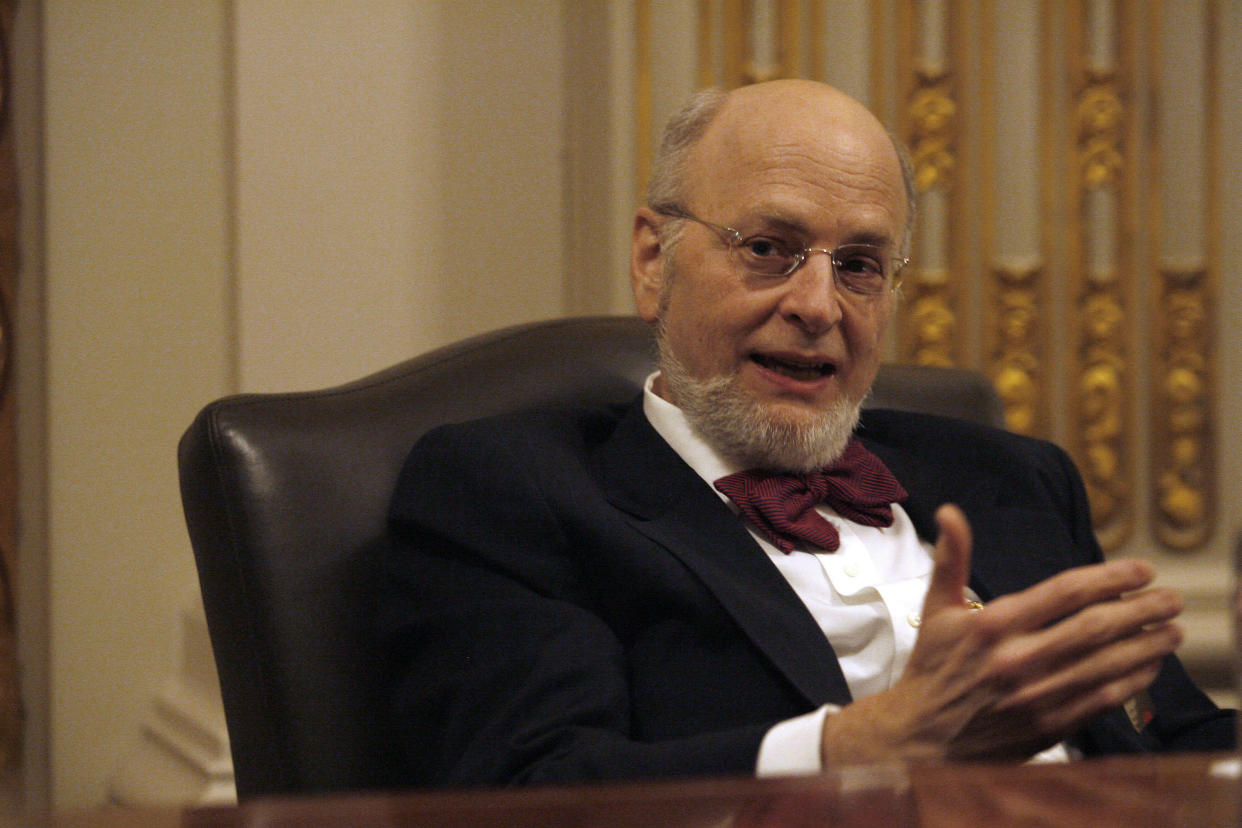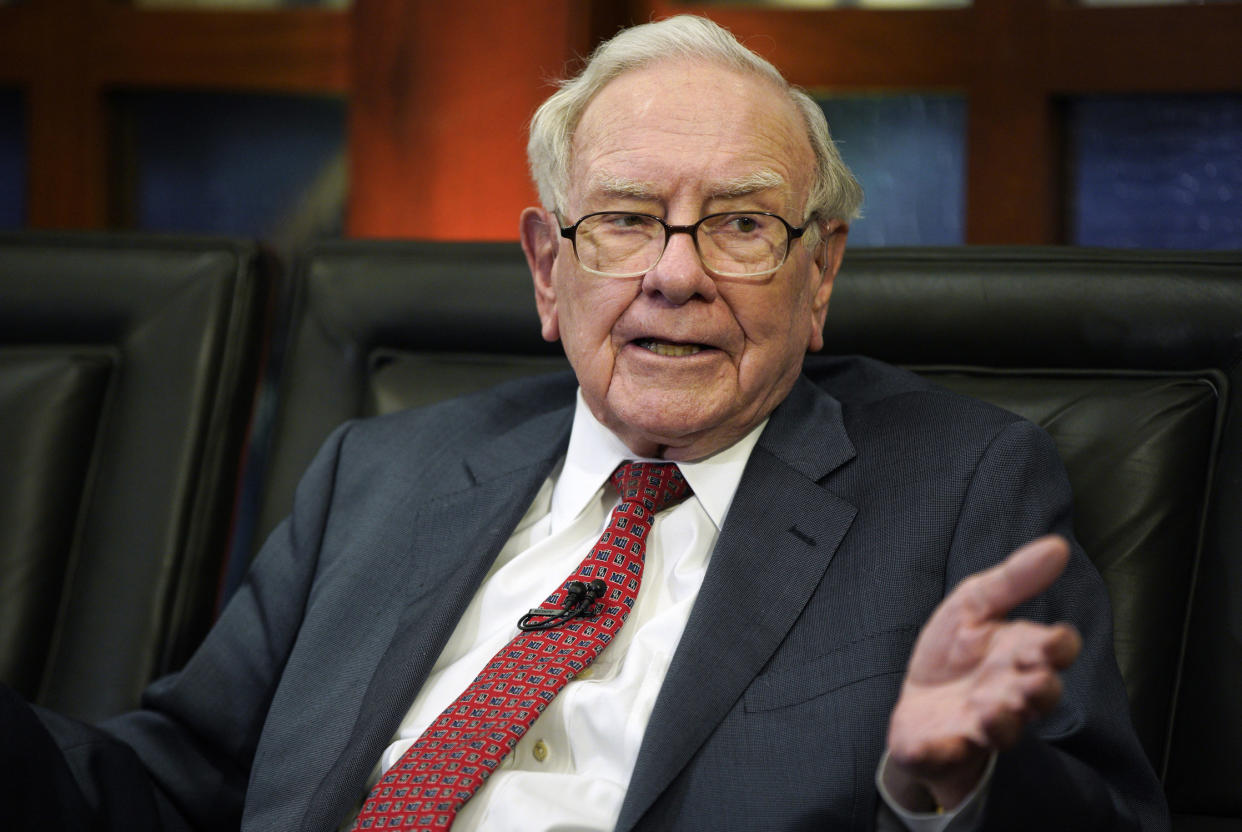The man behind the S&P 500 is retiring after 24 years heading the index

When people talk about a fund “beating the market,” the measure they’re usually referring to is the S&P 500 (^GSPC), a basket of 500 stocks from large cap American-based companies identified by a committee. The basket doesn’t manage itself.
Since 1995, that index committee, which also manages the iconic Dow Jones Industrial Average (^DJI), has been led by a man named David M. Blitzer. And on Tuesday, after 24 years on the job at S&P Global (SPGI), Blitzer announced he was retiring, effective in August, after a total of 38 years with the company.
Through a long tenure that included the dot-com bubble and the Financial Crisis recessions, Blitzer managed one of the most important concepts in finance, steering it through some dicey situations that required careful judgement and focus on the clients — which Blitzer describes as “regular people” who aren’t “wiz kid quantitative analysts.”
Over the years, much has been made of Blitzer and his team “beating” actively managed mutual funds, hedge funds, other complex financial products and even the average stock-picking investor. And while he says beating the active products is “not the first thing I would think about,” he takes satisfaction in what the index actually does, helping these regular people.
“I think the place it makes the most difference is clients saving money or investing for retirement, kids college, a house, a vacation, all those things,” he told Yahoo Finance in a call Tuesday. “If we can provide what an ETF issuer turns into a reasonably good investment at a very nice price, I think we’ve done our job.”
The unsung passive king
“Reasonably good” is an understatement, as investing titans like Warren Buffett frequently point to investing in Blitzer’s handiwork as where the people’s money should be. One of Blitzer’s favorite moments over the years was Buffett’s bet against Protégé Partners that an index fund would outperform active funds. The index fund, of course, was an S&P 500 index fund, and the story was included in Buffett’s 2018 letter to shareholders.
“To me, that was one of the greatest stories I’ve seen in a long time,” said Blitzer. “I sort of wonder why anyone is putting money in a hedge fund.”

When Blitzer began his tenure leading the index in 1995, passive ETFs and index funds represented just 3% of assets under management, according to Morningstar data. That number is likely to top 50% by the time Blitzer officially steps down.
“I think the growth in passive investing is well deserved,” he said. “Maybe not every single ETF and index, but in the vast majority investors know what they own, the cost to them is quite modest, and they see the performance.”
Memorable moments
While everyone else’s job in the passive industry is pretty passive, Blitzer’s has been an active one, and he’s had some tough moments making judgement calls, as the S&P 500 index isn’t a strict rule-based affair like others can be, based on a set of criteria.
Among the most memorable moments: Deciding to keep AIG in the index after it became 90% owned by the Treasury during the Financial Crisis, as the S&P rulebook, to which Blitzer and the committee try to stay faithful, require 50% public float.
Or one time during the Financial Crisis when someone called Blitzer to ask whether Fannie Mae and Freddie Mac were going to be taken out of the index because they were going to be put under government conservatorship — before it was publicly announced.

“Clearly we couldn’t announce anything because we weren’t supposed to know this,” Blitzer recalled. “He wasn’t supposed to tell!”
But Blitzer and his team did what they always did: stick to the playbook of no preferential treatment. Many times, he said, he would receive calls from businesses begging for inclusion on the legendary index, often because some interesting news was coming. Blitzer would brush them aside, telling them they only use public info, and that they already know about the company.
“If someone calls at the end of the call, I say you understand what we do? You won’t hear from us again unless you get an email after 5:15 we just posted a press release on our website,” he said. ”And if you call at 5:14 you get a no comment. That’s it! I did that once or twice! That’s the rules.”
The future
The challenges for the next Blitzer — yet to be named (“I’ll have to wait along with everyone else!” he said) — will likely be an increase with the issues the committee has already faced, like tax dodging and corporate governance issues with supervoting shares that modern tech companies seem to favor as they retain significant control despite being on the public market.
“There have been supervoting shares forever, but when Google (GOOG, GOOGL) or Facebook (FB) suddenly announced they were going to do this [dual class structure]... well it was hard to believe they were afraid of being taken over,” said Blitzer. This was an issue for Blitzer and the S&P 500 in those instances, and it’s likely to continue as companies like Snap (SNAP) decline to offer voting control to the public. (Blitzer wouldn’t include Snap anyway because profitability is a requirement.)
Another issue Blitzer said will come up again is “companies trying to move around and avoid tax laws and regulations,” like domiciling in Ireland, but still wanting to be an American company.
American company or not, the landscape is becoming more international, Blitzer said, so more transparency from companies, regulators, markets, and indices will be a key factor going forward, because investors are looking farther and farther afield these days.
At the same time, Blitzer notes that these challenges won’t probably be the big problems his successor will face.
“Most things that cause us to dig in and understand whether our methodology come out 10 days before [we need to make a decision],” he said, holding up the voting share issues as a prime example.
For now Blitzer will push on and finish out his career at the end of the summer overseeing everybody’s favorite benchmark — with some contentment.
As he put it, “Nobody’s perfect, but I think we’ve done a credible job of building an index.”
-
Ethan Wolff-Mann is a writer at Yahoo Finance focusing on consumer issues, personal finance, retail, airlines, and more. Follow him on Twitter @ewolffmann.
Why some CEOs retire and other step down
S&P says Snap doesn’t have what it takes to make the S&P 500
